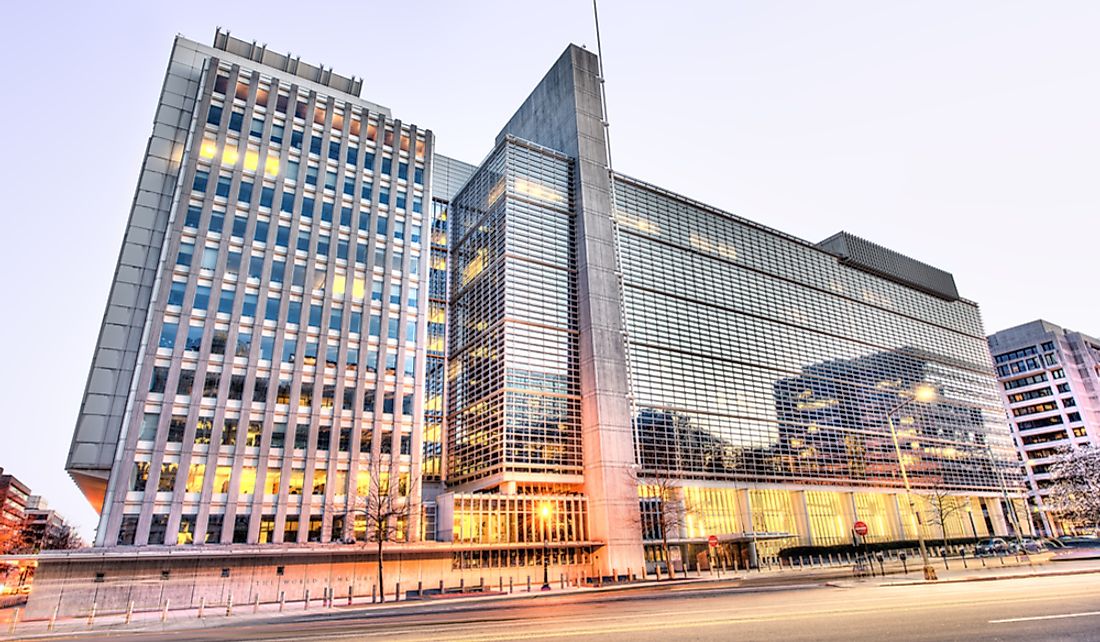Where Is The Headquarters Of The World Bank Located?

The headquarters of the World Bank is situated in Washington DC, United States. The agency is a financial institution that avails loans to nations for development. Two organizations make up the World Bank; the International Development Association (IDA) with a membership of 173 countries and the International Bank for Reconstruction and Development (IBRD) comprising 190 countries. Three other organizations together with World Bank make up the World Bank Group. However, the general mantra of the World Bank as an international financial body is to alleviate world poverty through a program of funding developing countries to assist in the initiating capital projects.
Inception
The institution was established in 1944 together with the International Monetary Fund which is also based in Washington, D.C.; their founding fathers were John Keynes and Harry Dexter. Up until 1974, the World Bank issued small loans which were accompanied with strict conditions that applicant countries had to meet. One such example was France, which was the very first country to receive World Bank Funding. In addition to the loan being monitored carefully, the French government had to remove members associated with the Communist Party. During this period loans were targeted at infrastructural projects including transport systems, power plants, and other projects that had the potential to return enough revenue to repay the principal amount issued.
Organizational Structure
The head of the World Bank is the president who has traditionally been a US citizen up until the latest appointment of Jim Yong Kim in 2012. The United States nominates the candidate, and approval is by the Board of Executives for a five-year term in office subject to renewal. The bank works like a cooperative with 189 countries who are members or shareholders, who are represented by the board of directors. Typically the board of directors is the policy-making organ, and they are ministers of finance in their respective countries. They meet annually and the US is the largest shareholder.
Developing Countries
Post-1974, the World Bank changed its approach to developing countries; those that had not yet achieved considerable economic development where poverty was more pronounced. The World Bank sought to concentrate on the basic needs of people in these countries this led to larger loans being made available to these countries as the priority was now on social services. To increase the money available to countries, the bank moved away from northern banks and entered the global bond market. However, the major downside of these huge loans has been the increase in debt for developing countries. Developing world debt rose by about 20% annually from 1976-1980 which in the long run is detrimental to economic growth and the posterity, which was detrimental to the initial goal of the World Bank.
Working Formula
The World Bank came up with Millennium Development Goals which rely on six principles; stronger growth in African states, increased effort in healthcare and education, incorporation of growth and environmental topics, more aid allocation, progress in trade agreements, and more support from the World Bank and its affiliate institutions. The development goals include eradication of extreme poverty and world hunger, worldwide primary education, addressing gender inequality, improving maternal health care and in the process reduce infant mortality, fighting global epidemics including HIV/AIDS and malaria as well as environmental conservation and sustainability.











